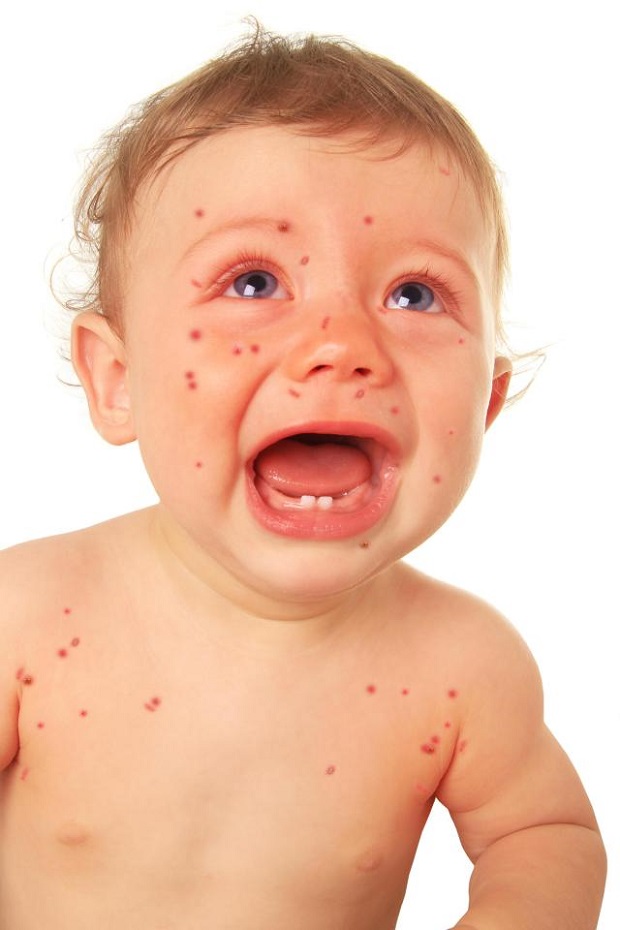Watch out for highly infectious measles
The typical winter, cold and rainy, makes it an ideal environment for many seasonal diseases like influenza. But other so-called childhood diseases like mumps and measles also have a tendency to flare up during this season. 2017 has seen a drastic increase in measles cases in Viet Nam. Although measles affects mostly children, non-vaccinated adults are equally as vulnerable and prone.
 |
What is measles?
Measles is a highly infectious viral disease. The virus can be spread through droplets from an infected person’s nose or throat through coughing and sneezing or any surface that has been in contact with an infected person’s droplets. A person may sneeze and not wash his hands, afterwards touch a door knob and another healthy person then opens the same door and later rubs his eyes. It’s that simple really.
Once in contact with the virus, it usually takes 10-12 days to develop the symptoms. A person is infectious about 4 days prior to that. If you or your child have measles, stay home and away from others.
What are the symptoms?
The most common symptoms are:
• Fever, runny nose and sore eyes.
•Small white spots inside the mouth on day 1 or 2.
• Dry cough.
• Fatigue, bone and joint pain.
• Diarrhoea and/or vomiting, loss of appetite.
• After 3-4 days a red blotchy rash develops first on the head and neck and then gradually covers the whole body.
• Children can be quite ill for 3-5 days. After this, the fever tends to ease and then the rash fades. Most children are better after a week to ten days.
Although most patients make a full recovery, measles is a serious illness and can have life threatening complications in children and adults alike
How is it diagnosed?
Go and see your doctor if you have any of the above symptoms. It is usually possible to make a diagnosis by examination only, but a blood test is often done to confirm the diagnosis.
Can there be complications?
Complications are more likely in young children below the age of 5, those who have a compromised immune system, and in adults.
They include:
• Conjunctivitis
• Sore throat
• Ear infection
• Bronchitis
Less common but more severe complications are:
• Fever fits
• Pneumonia
• Encephalitis (brain inflammation)
• Hepatitis
• Squint, as the virus can affect the eye’s muscles
How can it be treated?
There’s no cure for the measles virus, any treatment is targeted at easing the symptoms.
• Adults and children, especially the latter, should drink as much fluids as possible. If your child does not drink enough, try to give him ice lollies.
• Paracetamol or ibuprofen can be taken every 6 hours to lower the temperature and ease pains.
• Vitamin A supplements can help prevent serious complications in children.
When to see a doctor?
See a doctor if you or your child do not get better or if the symptoms worsen or you experience any complications listed above. Seek immediate medical attention in case of:
• Drowsiness.
• Dehydration in children (dry mouth and tongue, little amounts of urine).
• Breathing difficulties.
• Fits.
Measles vaccination
The measles vaccine is highly effective and safe. Children can be vaccinated during their first year of life, but the vaccine can be given at any stage. Not vaccinating your children exposes them to an unnecessary and very high risk of getting infected and to spread the virus. If you or your child have been in contact with an infected person and you don’t know whether you have been vaccinated, ask your doctor for advice and post exposure treatment.
(Source: VNS/ Ha Noi French Hospital)